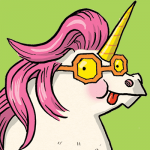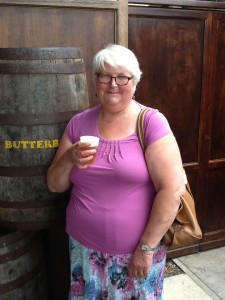As part of the exercise on blogging we have all been asked to come up with 7 questions that we would ask out favourite author/actor/celebrity and then apply those same questions to ourselves. We then turn this into a blog entry that hopefully tells people about ourselves. Easy you say, well we only have 1 hour and fifteen minutes to make some sense.
I do remember the experience of learning to read at school and the first reading scheme that was made up of folk tales; my first memory is of reading “The Little Red Hen”. This led on through a range of colours to yellow, blue, pink, violet and lime. This is where I first read stories such as the 12 dancing princesses and the Ugly Duckling, so that I received a through grounding in European fairy stories.
I don’t remember there being any one particular inspiration for me. I attended a small church school and there were only two large divided classrooms, with no space for a library. All the library books were kept in a folding display unit that could be closed up and put away when not in use. However we did listen to schools radio and I remember listening to “A dog so small” by Philippa Pearce and “Stranger at Green Knowe” by Lucy Boston
As a child I don’t remember the first time that I went to the library, but I do know that by the age of about 8 or 9 I was a regular at the town library and had developed a love of anything with a historical theme. I discovered writers such as Henry Treece, Cynthia Harnett, Geoffrey Trease and of course Rosemary Sutcliff.
Unlike many people I have heard, I do not have any one person that helped me become a reader. My father had died when I was 6 and my mother was not a reader, however she did give me the opportunity to use the library and obviously walked me down there every Saturday in order to get my fix of books. I suppose in some way I should give thanks to Peggy Heeks who ran the children’s library service in Berkshire and who provided such an excellent range of books. As a child I had no idea of how old they were etc, but I can now see that we were pretty current with the book stock available to us. I had the pleasure of meeting Peggy several times over the years as part of my professional life and she may have unknowingly set me on this path.
My first job in libraries came in the very early 1970s, working as the library assistant at a new small branch library in Basingstoke and spending a day a week at the central library, which was a totally different experience. In those days the library assistant was not meant to answer book and information enquiries, even if it was just pointing out where specific authors were shelved. At my job interview I had voiced an interest in going to library school and gaining a professional qualification, so I was very happy when Manchester Polytechnic accepted me and I went off to study on the old two year Chartership course; a very practical and very hectic course that really gave you the tools for the job.
Because of my experience in public libraries and the amount of work I had done with children’s activities etc it seemed logical to focus on those areas for my study and I can say that 40 years on I have no regrets about the choice, particularly with regard to children’s work. My year as chair of YLG and of the Carnegie and Kate Greenaway judging panel can only be described as like reaching the top of Everest and even at my advanced age I feel that my knowledge and enthusiasm has not diminished. The methods of qualification may have changed but the satisfaction that you get from the job has not. Librarianship is changing and the opportunities are different from those on offer in the 1970s, however I still think it can be the best job in the world.
So what would be my advice to those wanting to become librarians? Firstly, have that enthusiasm for the job. I find that being inquisitive has been a great help and also the willingness to keep ahead of all the changes that will continue to challenge the profession in a very rapidly changing world. Above all remember that for most of us this is a job about people and helping them achieve the goals that they want.


